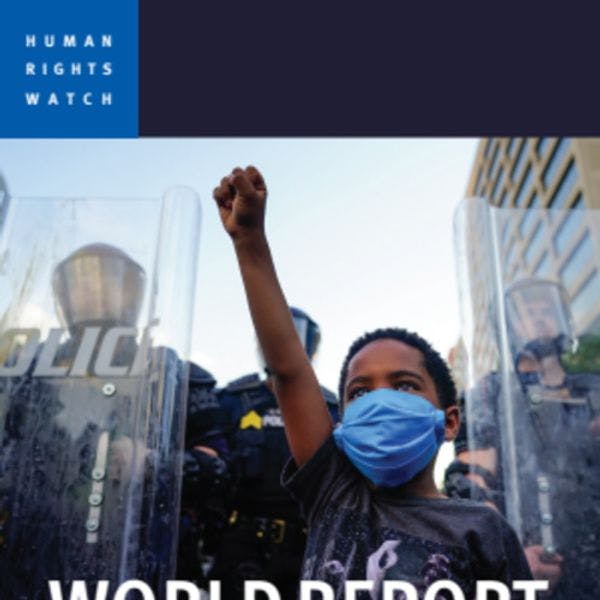Human Rights Watch
Human Rights Watch: World Report 2021
By Human Rights Watch
World Report 2021 is Human Rights Watch’s 31st annual review of human rights practices around the globe. It summarizes key human rights issues in more than 90 countries and territories worldwide, drawing on events from the previous year.
In his keynote essay, “Biden’s Challenge: Redeeming a US Role for Human Rights,” Human Rights Watch Executive Director Kenneth Roth addresses the shortcomings and human rights violations of the outgoing Trump administration, while setting forth recommendations for how the incoming Biden administration may help the US reclaim its role as a world leader through global partnerships and recommitting to human rights at home.
One step, as Roth suggests, is to set such commitments to upholding human rights via legislation. Narrow Democratic majorities attained in both houses of Congress from the 2020 election will be invaluable to Biden as he hopes to hit the ground running in his first 100 days. Other commitments, however, such as the ratification of core human rights treaties, will require a degree of bipartisanship not seen during Trump's term in office, since they will require the support of two-thirds of the Senate in order to be passed. As Roth summarizes, "Biden’s task is to find a way, through policy and practice, to make upholding human rights more central to US government conduct in a way that has a better chance of surviving the radical changes in policy that have become a fixture of the US political landscape."
Perhaps the greatest challenge before Biden, is the task of reframing how fundamental human rights are understood in the US. In Trump's final year at the helm, thousands of families seeking asylum at the US-Mexico border were forcibly separated from each other and children were segregated into cages, systemic racism was brought into the spotlight once again as deep-seated racial injustices continued to act with apparent impunity, and the COVID-19 pandemic revealed glaring deficiencies in the country's ability to provide universal access to health care and other basic necessities during a crisis.
The rest of the volume consists of individual country entries, each of which identifies significant human rights abuses, examines the freedom of local human rights defenders to conduct their work, and surveys the response of key international actors, such as the United Nations, European Union, African Union, United States, China, and various regional and international organizations and institutions.
More specifically in relation to drug policy, the report highlights numerous human rights violations, including:
- Drug policy shortcomings disproportionally punishing those who have the smallest influence in sustaining the illicit drug trade (in Azerbaijan, Georgia, Mexico, the Philippines, Russia, Saudi Arabia, Singapore, Thailand, and the United States).
- False drug charges and police raids weaponised for political purposes (in Azerbaijan and the Philippines).
- Racial disparities in policing (in the United States).
- Widespread violence and killings perpetrated by state and non-state actors (in Colombia, Democratic Republic of Congo, and Syria).
- Lack of access or limited access to essential medicines due to conflicts, global health crises, or stigma (in Argentina, Brazil, Bangladesh, Indonesia, Iran, Israel and Palestine, and the United States).
